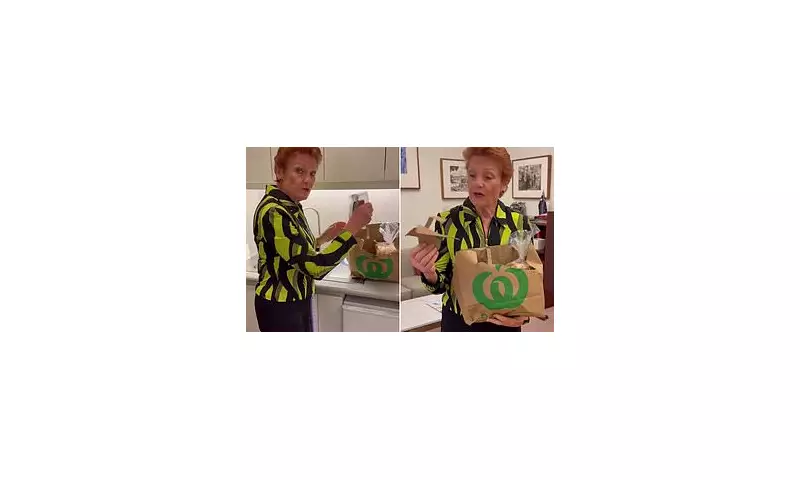
One Nation leader Pauline Hanson has declared war on Australia's supermarket duopoly, urging shoppers to abandon Woolworths and Coles in a dramatic consumer protest over what she calls their "hypocritical" environmental policies.
The Paper Bag Paradox
The political firebrand's outrage ignited after both retail giants confirmed they would continue charging customers for paper bags, despite their recent decisions to remove Australia Day merchandise from shelves. Hanson argues this exposes a glaring contradiction in their corporate values.
"They're happy to make a political statement by removing Australia Day products, but when it comes to actually helping the environment they claim to care about, they're still charging customers for paper bags," Hanson declared in an exclusive statement.
Supermarket Giants Under Fire
Woolworths defended its position, stating that paper bags incur significant costs and that charging for them encourages customers to bring reusable alternatives. Similarly, Coles maintained that their paper bag pricing reflects the substantial expense of providing them.
However, Hanson remains unconvinced, telling her substantial social media following: "Don't shop at Woolies or Coles. They don't deserve your business."
The Australia Day Connection
The controversy deepens when examining the timing. Both supermarkets recently announced they would not stock Australia Day themed products this year, citing "declining customer demand" and a desire to be more inclusive.
Hanson sees this as evidence of corporate virtue signalling, particularly when contrasted with their continued paper bag charges. "They're pushing a political agenda while pretending to care about sustainability, but their actions show they care more about profits than principles," she argued.
Consumer Reaction and Market Impact
The call for a boycott has sparked intense debate across social media platforms, with many Australians expressing support for Hanson's stance. The controversy comes at a sensitive time for both retailers, who are already facing scrutiny over pricing and market dominance.
Industry analysts suggest that while individual boycotts may have limited impact, sustained consumer action could pressure the supermarkets to reconsider their policies. The situation highlights growing tension between corporate social responsibility initiatives and consumer expectations.
As the Australia Day period approaches, all eyes will be on whether Hanson's campaign gains traction and how the supermarket giants respond to mounting public pressure.





